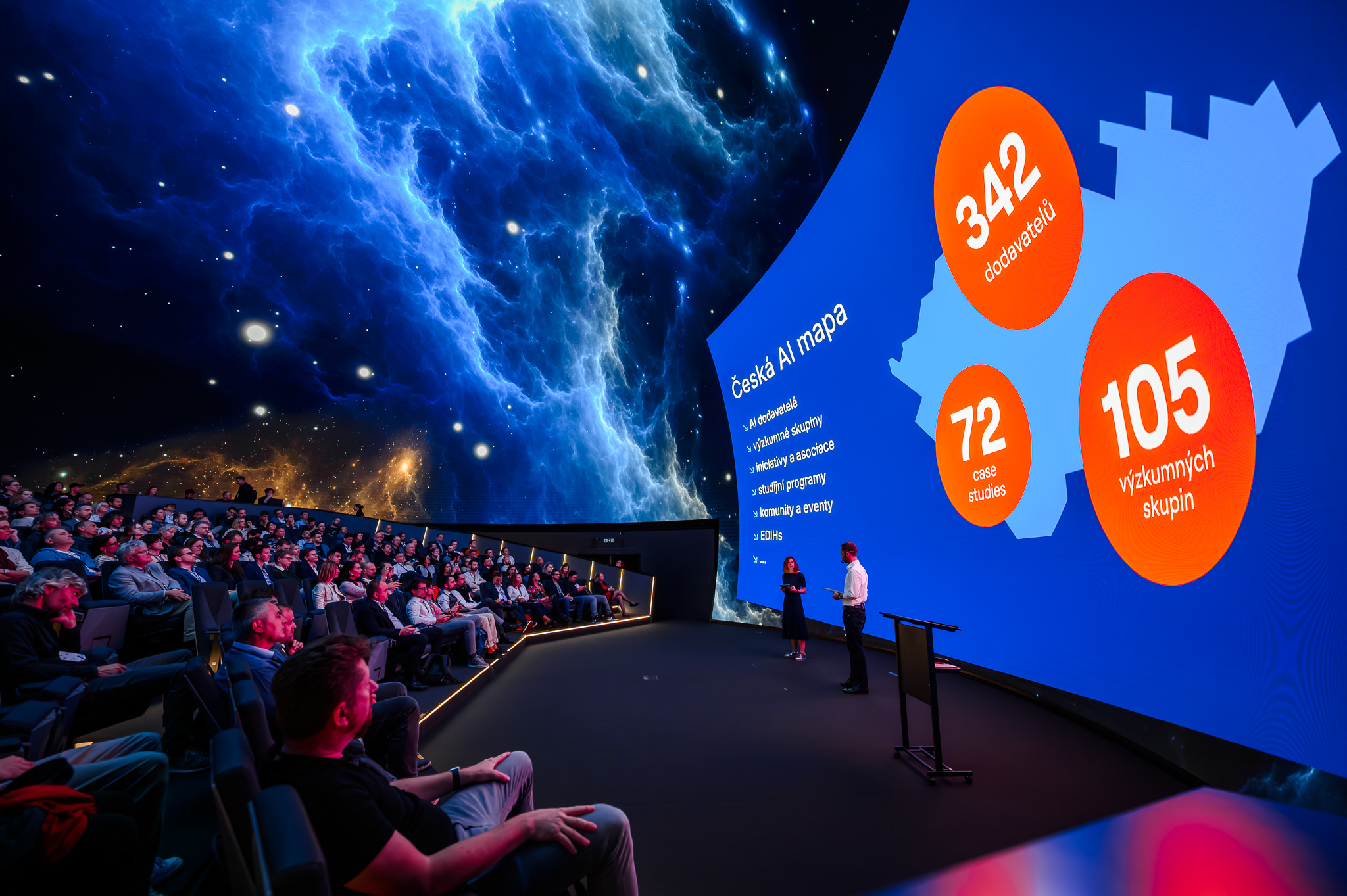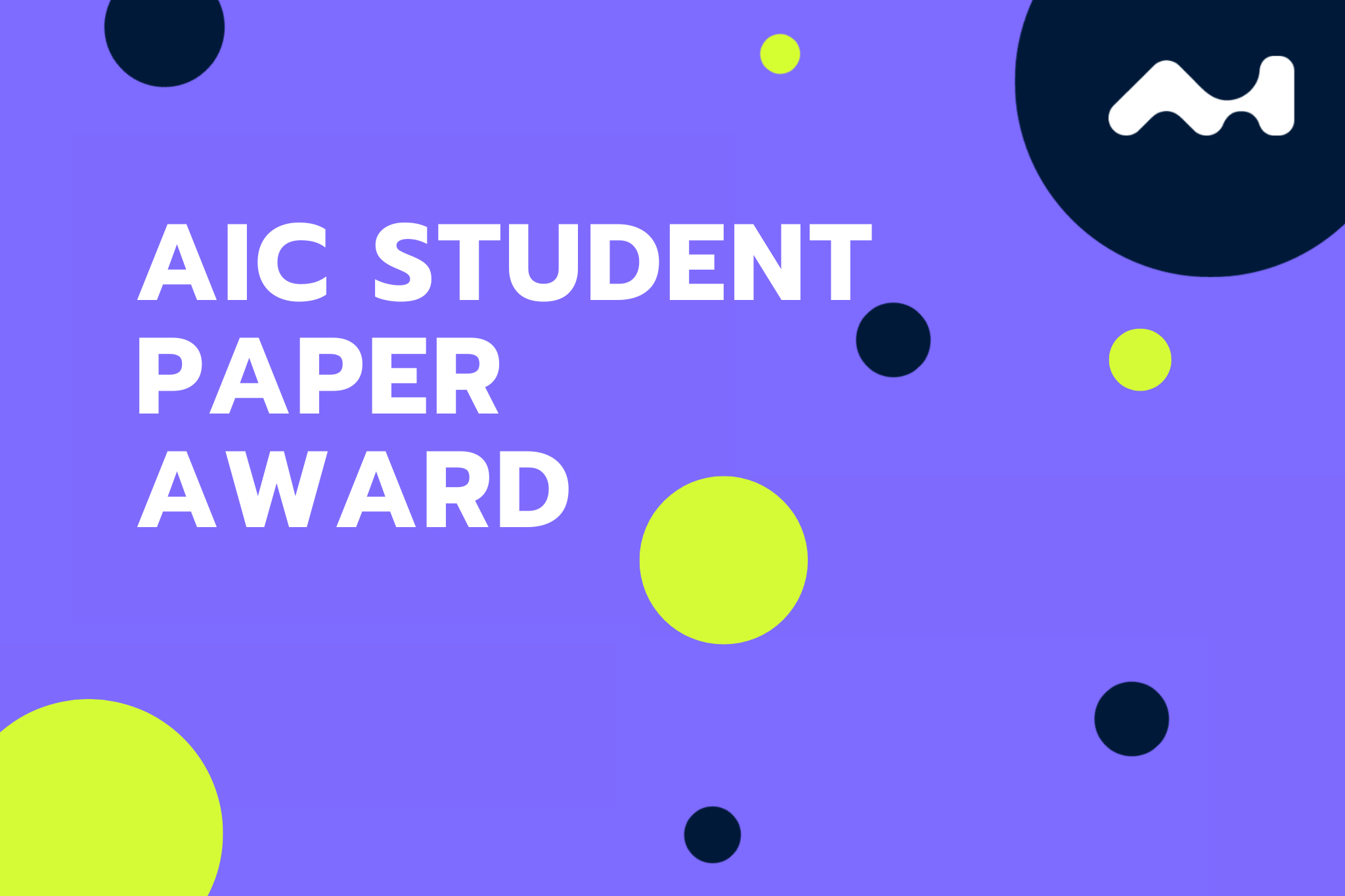How do robots see the world? Our interactive light installation Forum Robotum brings the state of the art research to one of the biggest cultural events in Prague.
On October 13–16, 2022, the tenth edition of Signal Festival will take place in several locations in Prague. For the first time, CTU also takes part with the interactive Forum Robotum installation on the Charles Square campus. The work was co-created by researchers, students and external artists. Visitors can look forward to a unique audiovisual experience with interactive elements. Over the course of four evenings, a robotic zoo will show, how robots perceive the world around them, what their magnetic field sounds like and how they react to people in real-time.
Bright future with robots
Forum Robotum is an opportunity to experience what the future of robots and humans might look like. At first glance, the installation is very playful. But at the same time, the aim of the instalation is to show people that robots will be around us more often and can be our partners, not competitors like often displayed in sci-fi films.

Inspiration comes from nature
Not being afraid of the unknown is the message of the installation, according to Petr Vacek, who is behind the design of the interactive elements. "People perceive the machines with their own senses and try to see if their actions provoke a response. This natural human ability to explore everything new with the help of an experiment leads to understanding, acceptance and banishing the fear of the unknown," explains Vacek. When creating luminous exoskeletons, he was inspired by the anatomy of animals, just like the manufacturers of robotic dogs and spiders. "The organs attached to the robots resemble the brightly colored shells of beetles or butterfly wings. Using them, machines reflect their own interpretation of human movement in their vicinity," he describes the mechanism.
The variability of the light elements and the stream of what robots see on a canvas are automated. The movement of the robots itself is controlled by human operators using wireless controllers that were specially developed for the installation by Tomáš Rouček and Bedřich Himmel. They enjoy their involvement in a creative project, even if the work is different from the usual tasks in the laboratory. "Art and science are quite different disciplines. It was nice for a change not to aim for a fixed goal," Rouček explains.

In addition to the visual perception, the sound component of the installation is also significant. "We scan the electromagnetic waves of the robots and convert them into an audible spectrum. We used a guitar pickup to do this. I myself was surprised by how rich is the sound landscape hidden in the robot," says the director of the installation Vojtěch Leischner.
Installation as one functioning organism
The biggest challenge for the team was to integrate all of the elements into one functioning organism. In addition to the robots themselves, the installation consists of electromagnetic sensors, microcontrollers, several wireless modules, light control, lidars (laser distance sensors), data analysis, computer vision and human-computer interaction. "Today's technologies are truly complex. What appears to be a simple thing at first glance contains a lot of different systems, buses and protocols behind the scenes. Their connection is key to creating such an installation – at the same time, this requires highly demanding work by the researchers which is often invisible," Zemánek points out.
The preparation of the Forum Robotum installation involved experts from various fields, who together created a work oscillating between science, technology and art. Interdisciplinarity was a welcome experience for the entire team.

All the presented technologies are used in research at the FEE CTU and also in classes. Particularly students of Bachelor's and Master's programs in the Open Informatics or Cybernetics and Robotics program will get the most experience with them.
Credits
Director: MgA. Vojtěch Leischner (Department of Computer Graphics and Interaction, FEE CTU)
Author of the concept: Ing. architect Petr Vacek
Curators: Ing. Jiří Zemánek, Ph.D. (Department of Control Engineering FEE CTU), MgA. Daniel Burda (Signal Festival)
Production and PR: Mgr. Karolína Poliaková (Department of Computer Science FEE CTU), Jiří Cmunt (Signal Festival)
Robot coordinators: Ing. Tomáš Rouček (Department of Computer Science FEE CTU), Ing. Bedřich Himmel (Department of Cybernetics FEE CTU)
Installation Forum Robotum on the festival’s website,
.png)
.png)



